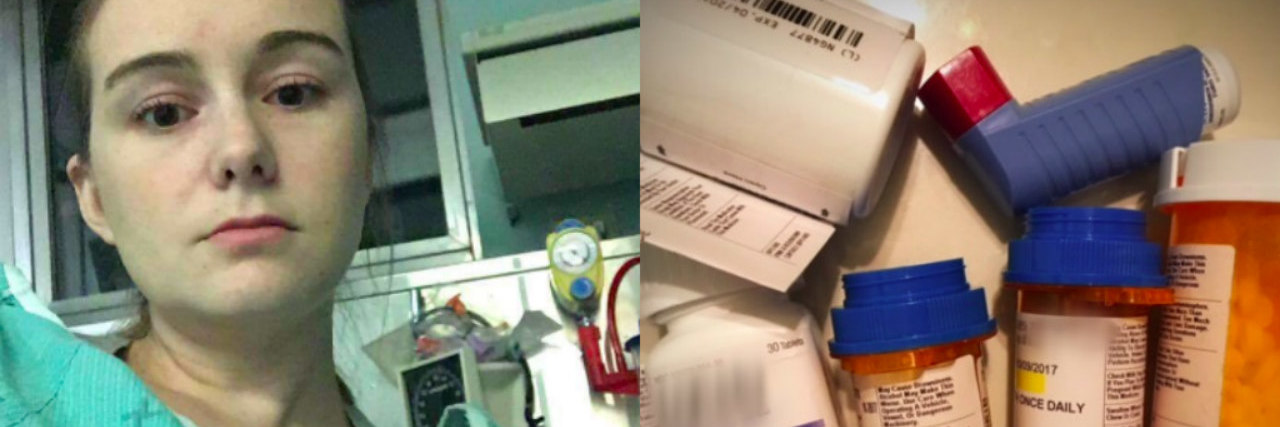17 Pictures People With PTSD Want to Post on Facebook, but Don't
Editor’s note: If you experience suicidal thoughts, have lost someone to suicide or experienced emotional, physical or sexual abuse, the following post could be potentially triggering. You can contact the Crisis Text Line by texting “START” to 741-741.
Facebook — and social media in general — is an amazing tool that can make the world a little bit smaller, and make keeping in touch a little bit easier. But when you live with a post-traumatic stress disorder (PTSD), sometimes it can feel like a struggle to show what your trauma “looks like,” when you’re trying to cope as best as you can.
We wanted to know what people with PTSD want to post on Facebook, but feel like they can’t, so we asked our mental health community to share one photo they wish they could post. It’s important to remember PTSD looks different for each person who experiences it. While some can hide what’s going on behind a smile and perfectly rehearsed act, others may not have the ability to do so all the time. Whatever way your PTSD manifests, you deserve to talk about it.
Here’s what they shared with us:
1. “These are the pictures of the side nobody sees. These are the pictures that show the most hidden away, vulnerable side of me. This is how my inner struggle with PTSD looks.” — Wiktoria B.
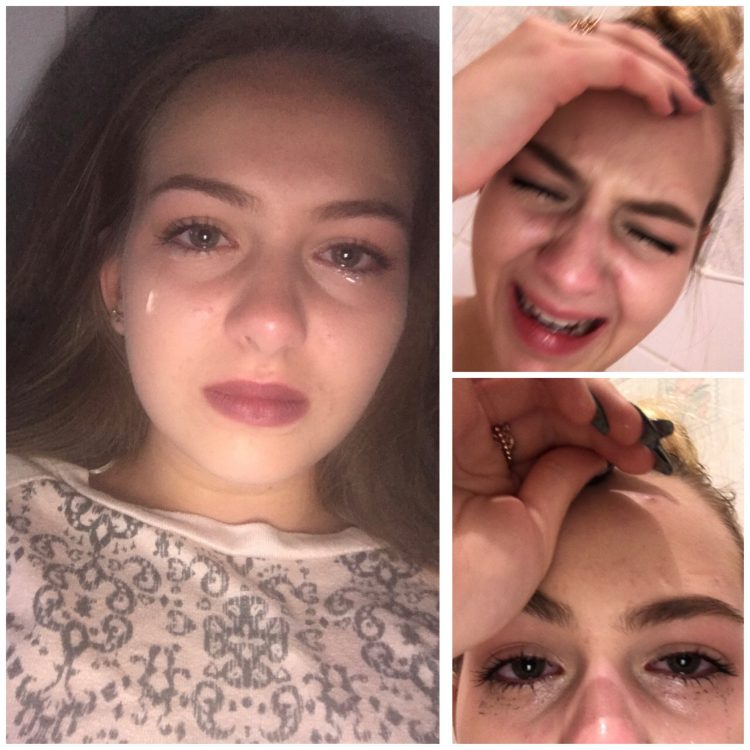
2. “To help hold the PTSD monster with accompanying anxiety attack at bay. It’s sad that we still live in a world where mental illness is so completely and utterly misunderstood and getting pill shamed for taking prescribed medications is still a thing.” — Bridget P.
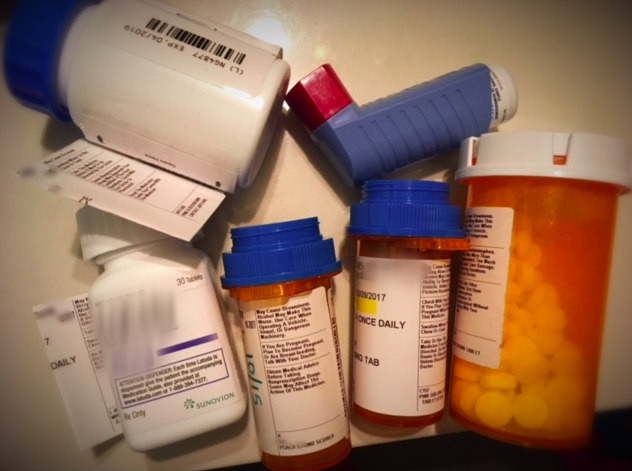
3. “I’m hesitant to show this on Facebook because I want people to think I’m OK and not know that I have depression or any mental health disorders.” — Robert H.
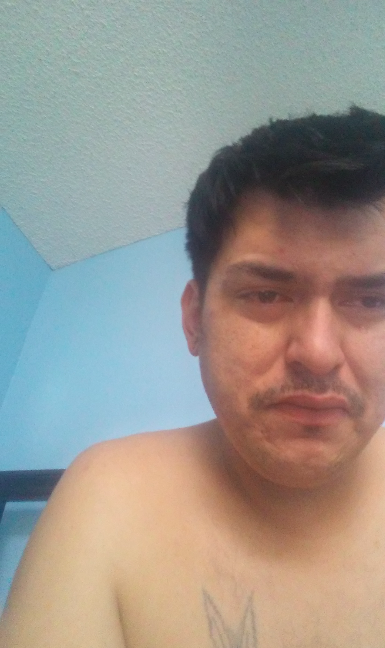
4. “This photo isn’t necessarily about my PTSD but the situation made my PTSD worse. This was taken while I was in the ICU after a suicide attempt that was triggered by an event that then triggered my PTSD to get worse and now my flashbacks and nightmares are back full force.” — Justine M.
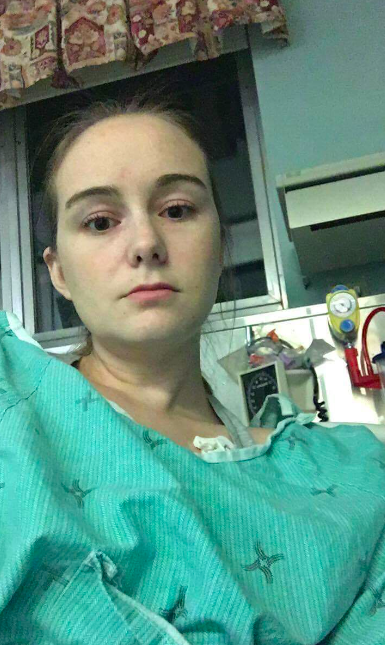
5. “Doc (me) and my PTSD service companion, Tonka. I’m frightened by this wheelchair. I was always an athlete and with special forces in the military. I feel useless and alone when I’m awake and terrified by my past when I sleep.” — Dale A.
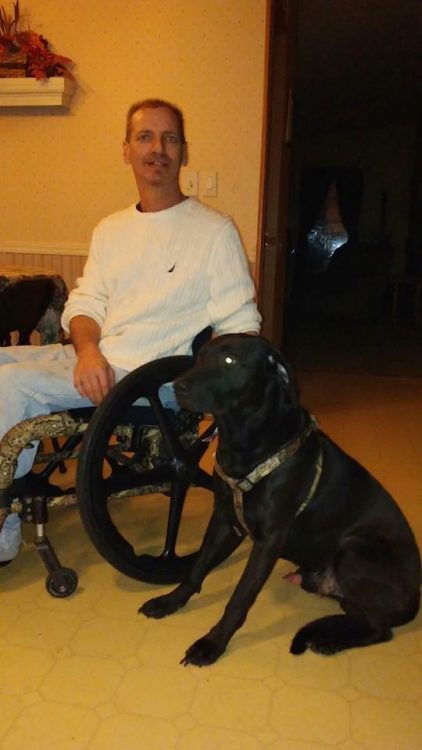
6. “My fiance was killed in a car accident on the morning of our wedding — someone ran a red light. This picture is of our rehearsal the night before. I have severe PTSD with weddings.” — Karen P.
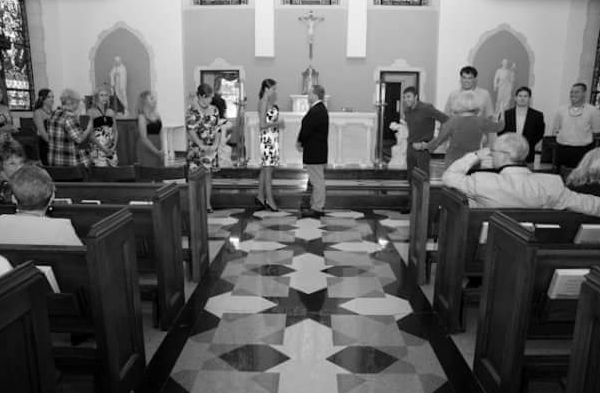
7. “There are so many days that are hard since I got home, but none as hard as the day pictured here. I must have shared and deleted this picture 100 times the day I took it and pictures like it. I was afraid if I shared it, people would be able to tell. I was afraid they would see that something in me had broken and that I wasn’t the same. There was a pain in those eyes that didn’t exist in other pictures. After I got hurt, smiles were hard to come by, as was sleep. I wanted to be free of the intrusive thoughts, the flashbacks… free from looking over my shoulder. I started to think that ending my life was the best way to get that freedom. I still struggle with that almost daily. But I got help after this photo was taken, and continue to go to treatment to this day. I try to reach out when I feel I’m in trouble, and try to be a shoulder for other PTSD vets if they need it.” — Tiffany M.
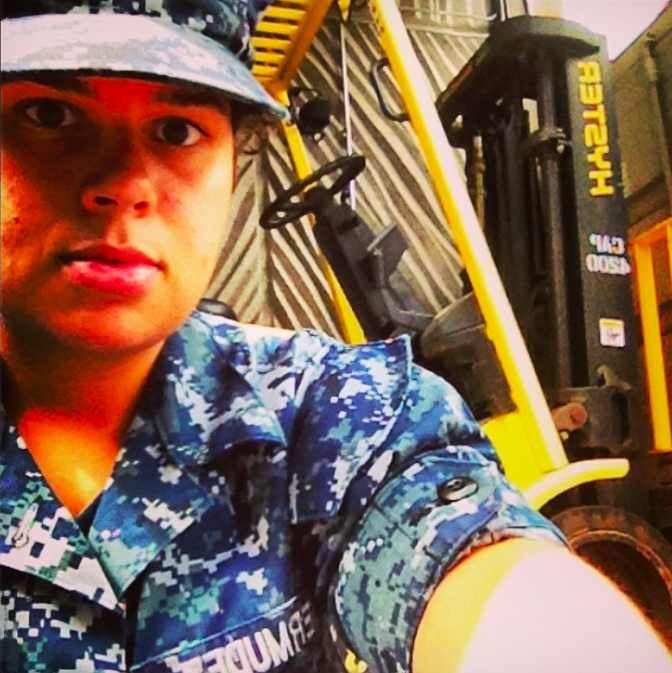
8. “Because people only see what I want them to see. In my worst moments, I’m dying and screaming to reach out, begging for someone to help me, yet I am alone. I may not be ashamed of my mental health, but I don’t let people see the other sides. The sides that would destroy them if they only knew the reality that it exists.” — Deana M.
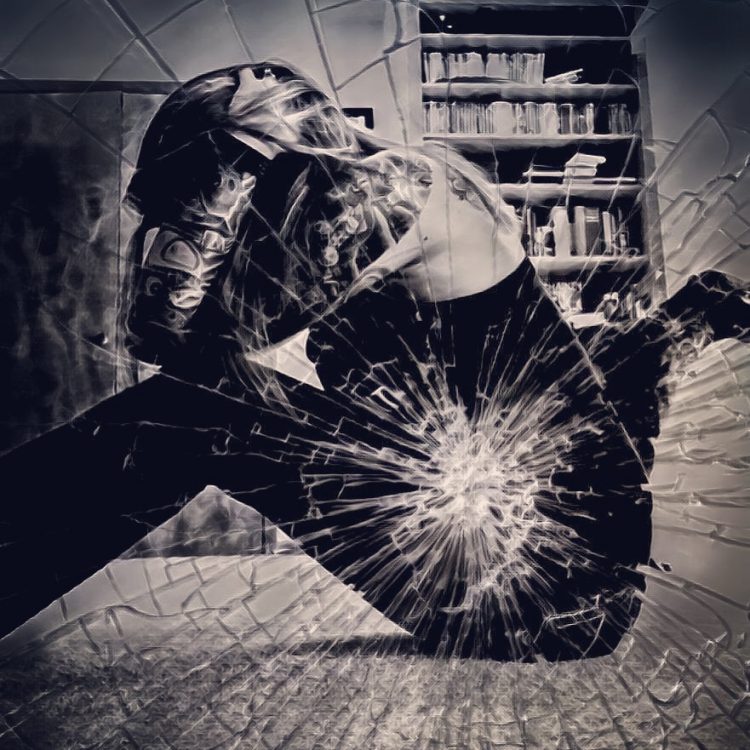
9. “This is the picture I would use. You see, in the beautiful moment captured in this photo, the outside world would never know that both people pictured here both suffer from and are both diagnosed with PTSD. They love hard, they love strong, they love with all they have. They both suffer, they both have pain and they both keep fighting their endless battles side by side. Joshua — I love you.” — Christa O.
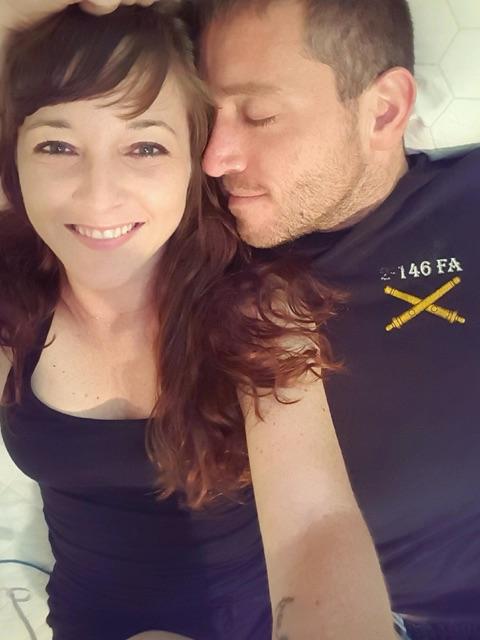
10. “If I had the strength, I would post this to my Facebook. I have PTSD from being in an abusive relationship. When things would get really bad, my hair would fall out. Even now that I am with someone else, I still have moments of fear and whenever that fear turns into weeks of not leaving the house I find bald spots again.” — Bethany L.
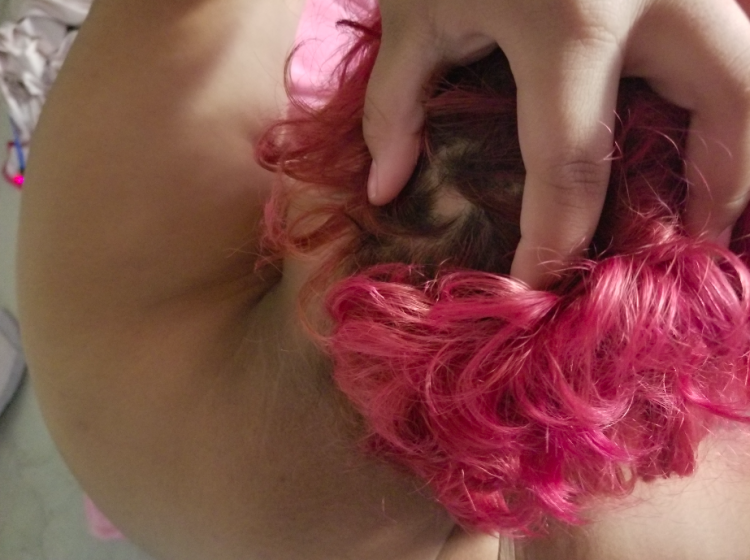
11. “This is me trying to reel myself back in from my PTSD episode. My husband is wrapping his arms around me, letting me know he is there for me and always will be — we had been married for a year. I want to post this to Facebook, but the only reason I don’t is because I’m afraid to let others see me when I’m down to my breaking points.” — Courtney N.
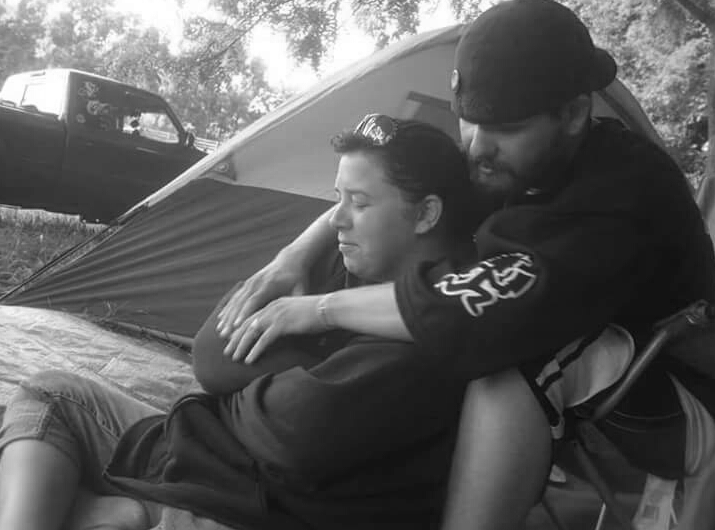
12. “In my natural state. I don’t talk about my PTSD often because people tend to only equate it with veterans and then dismiss me and my diagnosis. I’m a severe abuse victim and my PTSD is more like a cherry on top of other illnesses, so I’m not often able to explain those triggers.” — Katy C.
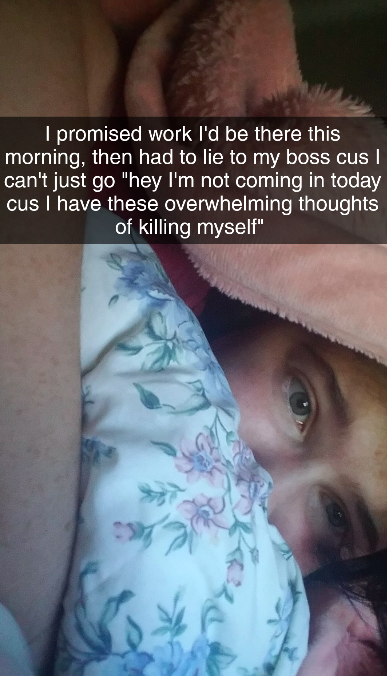
13. “PTSD isn’t always a person who has served in a war (God bless them though). PTSD can be the woman who left a seven year abusive marriage and has to run away and rebuild… PTSD is my diagnosis. I didn’t serve in a war, but every day there is a war in my mind. Every morning I wake up, drink my coffee and try again. Some days are harder then others but I will never give up.” — Victoria A.
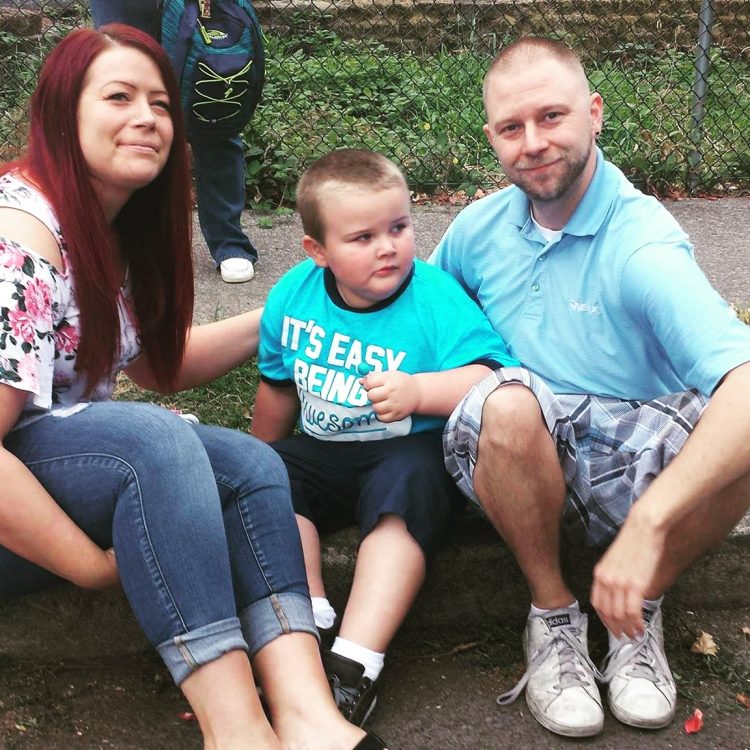
14.“This is me hiding behind a smile. No matter what, people know I’m ‘frauding.’” — Jay G.
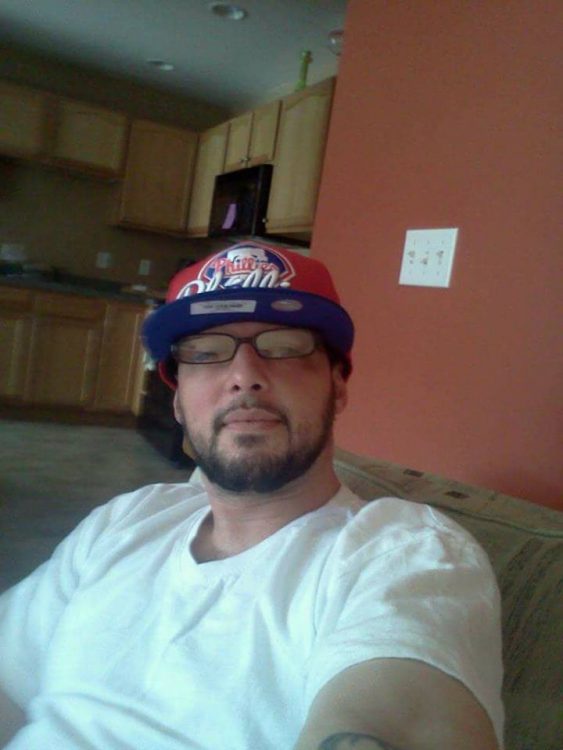
15. “My brother died by suicide on June 2, 2014. He was 30 years old… I am still working through my grief and PTSD in therapy, but that image will always be there, and my brother will always be gone.” — Kae W.
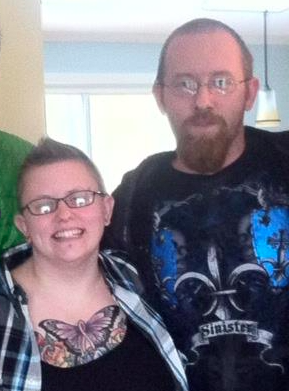
16. “When someone says they will be always be there for you. However when you show one tiny symptom, they run a mile in the other way.” — David T.
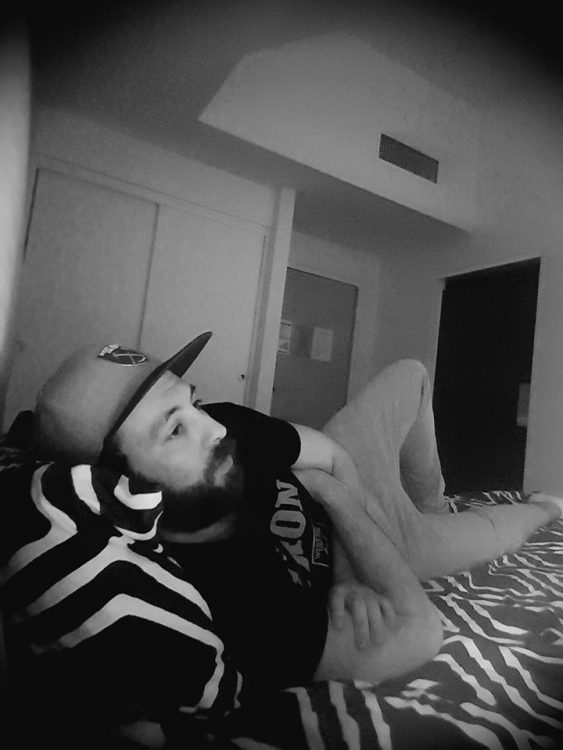
17. “I was abused by my birth parents both physically and emotionally, which manifested into PTSD after I was removed from the home and put into foster care. Thanks to adequate mental health care, I am now in college double majoring in Forensic Investigation and Anthropology with a minor in Archaeology, and I plan on getting a doctorate degree! PTSD has many faces, but it’s not impossible to work through.” — Kira P.
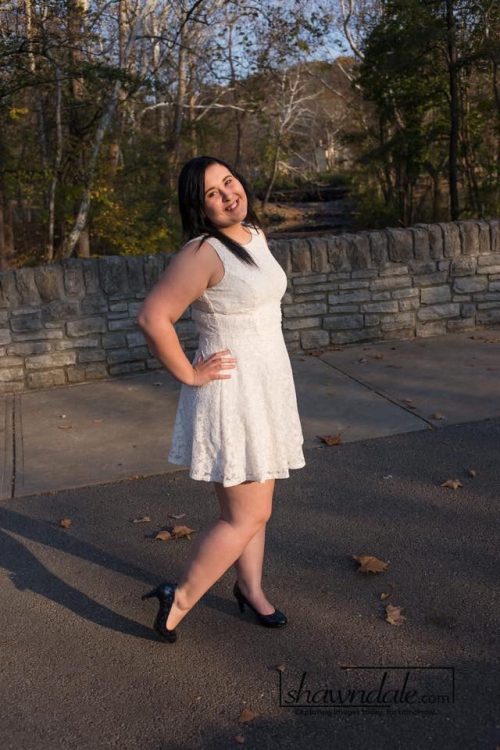
If you or someone you know needs help, visit our suicide prevention resources page.
If you need support right now, call the National Suicide Prevention Lifeline at 1-800-273-8255 or text “START” to 741-741.

